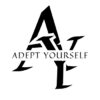“Childhood” – by Markus Natten
Introduction
- “Childhood” is a reflective, philosophical poem by Markus Natten, a Norwegian poet.
- The poem explores the stage of life when one realises that childhood has slipped away.
- It questions innocence, purity, faith, and simplicity that we associate with childhood.
- The poet analyses the loss of childhood as a movement towards self-awareness and maturity.
Summary
- First Stanza – Rational Awareness
- The poet wonders when his childhood ended.
- He recalls the moment he discovered that hell and heaven do not exist and are just concepts.
- Childhood innocence is lost when rational thinking replaces blind faith.
- Second Stanza – Loss of Belief in Adults
- Childhood disappears further when the poet realises that adults are hypocrites.
- They preach love and goodness but fail to practise it in real life.
- This discovery shakes the child’s innocent trust.
- Third Stanza – Awakening of Self
- The poet links the loss of childhood to the awakening of the individual self.
- He begins to understand that he has a unique identity, a separate existence from others.
- This marks the growth of self-awareness and maturity.
- Fourth Stanza – Where Childhood Remains
- The poet concludes that childhood is not completely lost; it lingers in innocent faces and in a child’s heart.
- It remains in pure expressions, laughter, and simplicity, even though he himself has grown out of it.
Themes
- Loss of Innocence – Growing up involves realising harsh truths.
- Rationality vs. Belief – Childhood faith in heaven/hell is replaced by reasoning.
- Hypocrisy of Adults – Adults’ double standards disillusion children.
- Self-Identity – The journey from innocence to individuality.
- Memory and Nostalgia – A longing for the purity of childhood.
Tone and Mood
- Reflective, thoughtful, questioning.
- Slightly nostalgic but also realistic.
- Balanced between loss (childhood gone) and discovery (self-awareness gained).
Poetic Devices
- Rhetorical Questions: “When did my childhood go?” repeated for emphasis.
- Refrain: The repetition of the question highlights the central theme.
- Metaphor: Childhood = innocence, simplicity, unquestioning belief.
- Irony: Adults preach love but fail to practise it.
- Symbolism: Heaven and hell symbolise blind belief.
- Free Verse: No rhyme scheme, mirrors natural thought process.
Critical Appreciation
- Markus Natten uses simple language to convey a deep philosophical idea.
- The poem portrays growing up not as a joyful gain but as a loss of innocence.
- The repetition of the central question makes it universal — everyone goes through this stage.
- The poem’s strength lies in its honesty and emotional appeal.
- By the end, the poet softens the tone by suggesting that childhood still exists in other children — a ray of hope and continuity.
Key Takeaways for Exams
- Central idea: Childhood is lost when innocence gives way to reasoning, hypocrisy is recognised, and self-identity is discovered.
- Important lines: “When did my childhood go? Was it the day I ceased to believe in heaven and hell?”
- Devices: Rhetorical questions, metaphor, symbolism, repetition.
- Message: Childhood cannot last forever, but its essence can still be found in children.
